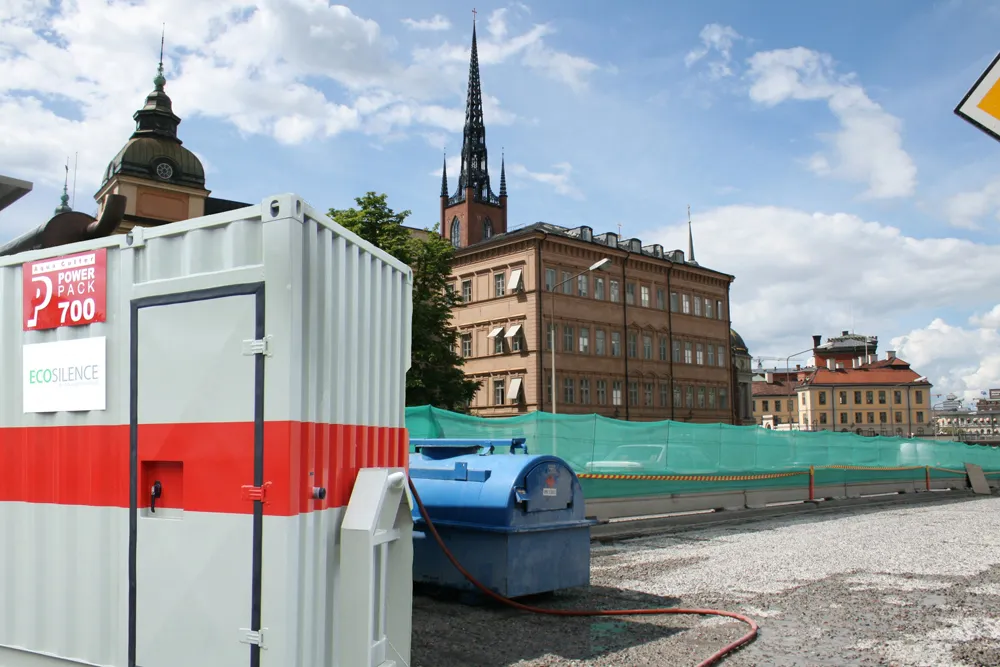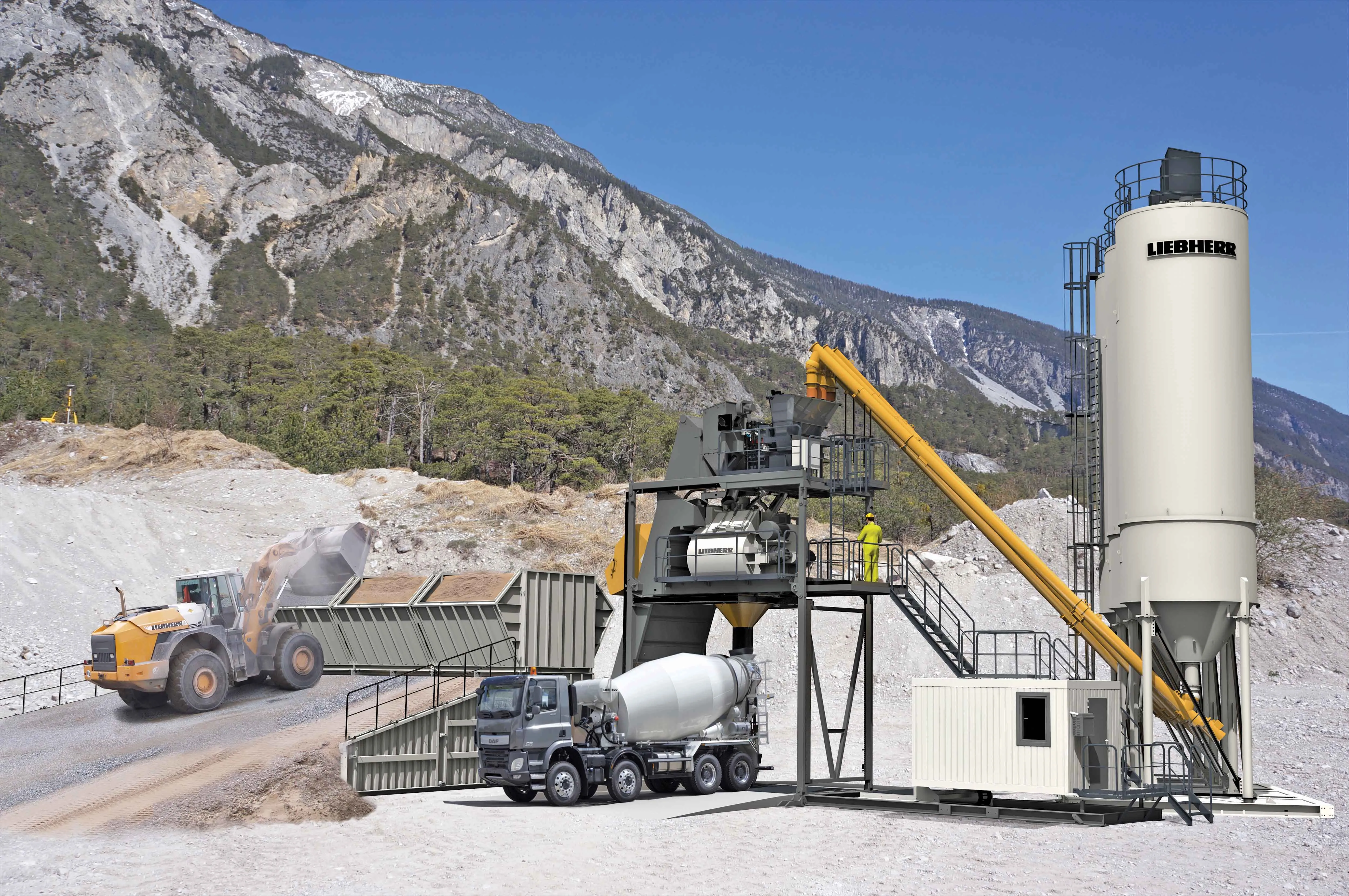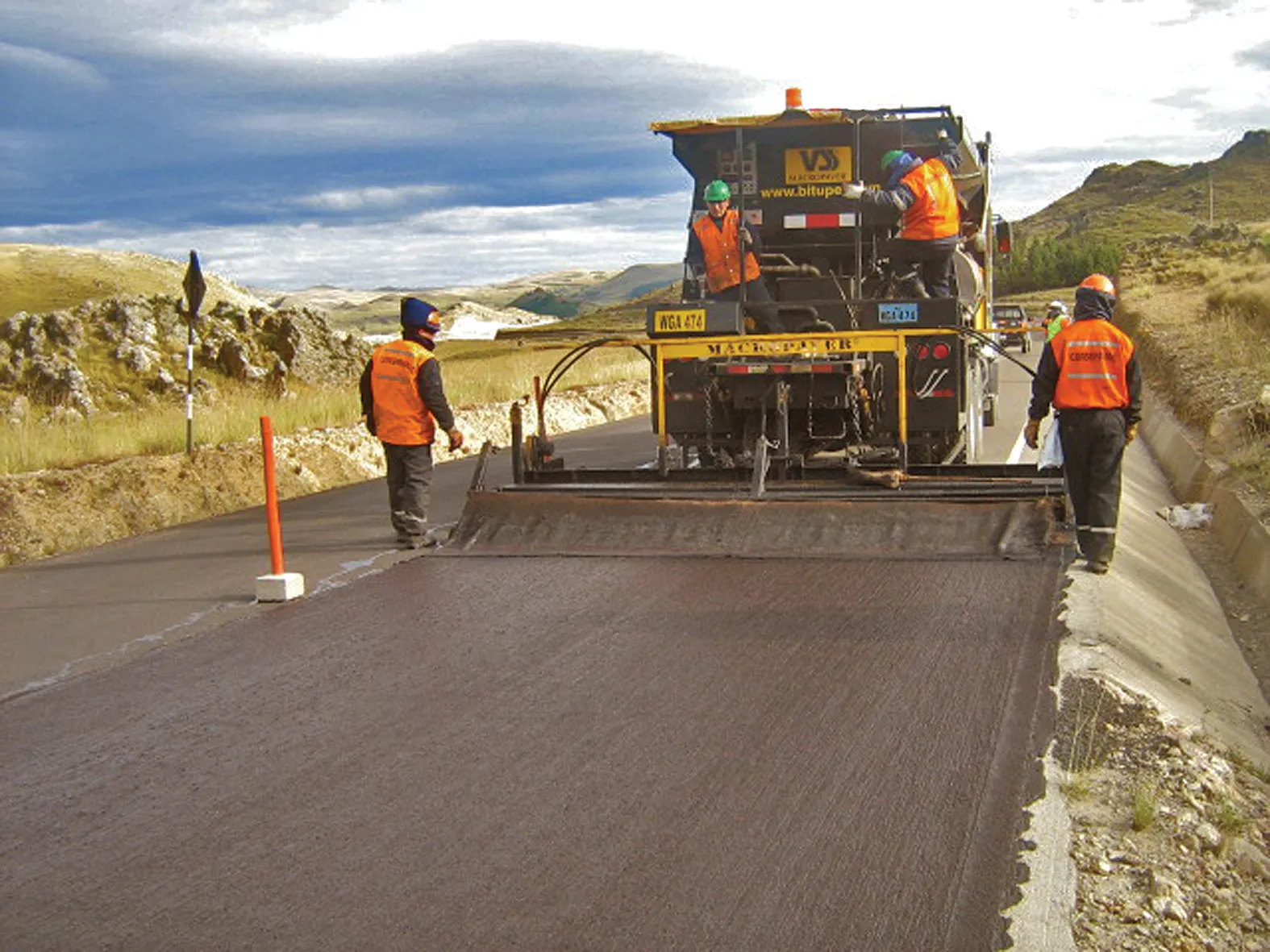Aquajet's new Ecosilence Power Pack has been tested to its limits on the tunnel/bridge renovation work in the city's historic Old Town and has exceeded all expectations, according to E-Schakt's project supervisor, Andreas Nordstrom. Equipment from the Swedish company, including Ecosilence making its debut, is being used in the tunnel and on the 1.2km Central Bridge (or 'Three Bridges'), which was built in the 1950s and which links the northern district of Norrmalm and the southern district of Södermalm. It
July 24, 2012
Read time: 4 mins

Equipment from the Swedish company, including Ecosilence making its debut, is being used in the tunnel and on the 1.2km Central Bridge (or 'Three Bridges'), which was built in the 1950s and which links the northern district of Norrmalm and the southern district of Södermalm. It includes two viaducts over the Söderström and Norrström, and surface restoration work involves a total area of almost 9,000m².
The Ecosilence Power Pack's performance is very much appreciated on the bridge, with its noise level being less than half that of conventional power packs and similar to that of a normal conversation, says Auqajet.
"The use of conventional power packs in open areas often requires special 'shells' to be fitted over them at an additional cost of up to €10,000," according to Aquajet Systems Sales and Marketing Manager Jan-Åke Petersson.
Its development will help contractors meet the increasingly stringent operational noise requirements that are imposed when working close to sensitive locations such as residential and office complexes.
"This is a key factor for us, and its operation on this city centre project has been so quiet, it's a real city machine," said Andreas Nordström.
Use of Ecosilence also said to achieve a substantial reduction in fuel consumption compared to conventional power packs, saving an estimated €35,000 a year in a typical operation.
"Traditional power packs use between 105litres/hr and 120litres/hr and fuel consumption is of increasing concern both in environmental terms and because of today's escalating prices," says Aquajet.
"Ecosilence's design means a saving of up to 30litres/hr when producing a water output of 200litres/min at 1,000 bar and
1,500 rpm at just 70% of its full power capacity." Aquajet says that key features of the Ecosilence Power Pack include a 40% increase in sound insulation, including the provision of tailor-made seals for all doors and hatches to block noise propagation; specially-designed wall construction, with an acoustic surface treatment and sound-absorbing insulation to reduce noise and vibrations, and a purpose-built steel enclosure that features two hydraulically-operated hatches for the engine compartment so that the operator can vent excess hot air between operations.
There is also an advanced heat exchange system in place of traditional cooling with the incorporation of new criteria into the exhaust silencer, with every aspect rigorously considered including the location, shape and fastenings.
A vibration dampener has been specially designed for the Ecosilence, while pipes, hoses and tubing have been refined and improved in line with the new design approach, and the unit has a specially adapted marine diesel engine with high torque power.
According to NCC Project Manager, Mr Halvarsson: "Hydrodemolition was specified for the work on the bridge and tunnel because jackhammers cause too much disturbance.
"With hydrodemolition you don't damage the concrete and you also have a better surface to work with. There is also no possibility of causing any cracks, whether micro-cracks or bigger ones. Another advantage is that the water jets also get right under and behind the rebar.
"There will be a lot more of this kind of restoration using hydrodemolition taking place in Stockholm in the next few years." Indeed, after completing this year's tunnel/bridge work, E-Schakt planned to move the Ecosilence Power Pack to a six-storey car park also in central Stockholm. Work was halted over the summer months with the first three decks stripped to a depth of 20 mm. The new decks will be laid with a slope following more than 80,000m2 being treated by the Aquajet hydrodemolition robot and Power Pack over the remaining seven floors.
Aquajet Systems sales and marketing manager Jan-Åke Petersson, said: "The popularity of hydrodemolition is now growing worldwide. In Sweden and other Scandinavian countries, no other form of demolition is permitted for repair works and it is also now being recommended in various German states.
"In addition, a new EU Standard is expected next year and we believe it will push hydrodemolition forward."









